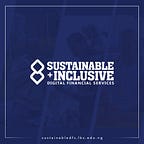Federalizing Power over Communication and Financial Inclusion
This month’s Tracker features a call by the Executive Secretary, Nigeria Computer Society (NCS), Mr. Iyiola Ayoola, for federalizing legislative power over Communication.[1] According to him, this will ensure that the states and local governments promote quicker and more democratic spread of broadband and other critical digital economy services. It would also obviate that problem of inapt policies due to over-centralization where decisions are taken in Abuja, far from the realities on the ground. Unit governments may be forced to give greater priority to un-served and underserved areas, be more sensible about impeding taxes and regulations and focus on creating jobs for the youth, while protecting digital economy entrepreneurs.
The Exclusive legislative List[2] [Schedule II, Part I, Constitution of the Federal Republic of Nigeria, 1999 (as amended)] does not list “Communication” or “Telecommunication” as such. Item 46 lists: “Posts, telegraphs and telephones”; Item 66: “Wireless, broadcasting and television other than broadcasting and television provided by the Government of a state; allocation of wave-lengths for wireless, broadcasting and television transmission”; and Item 68: “Any matter incidental or supplementary to any matter mentioned elsewhere in this list.” The Concurrent legislative list does not contain any provision directly or indirectly alluding to Communication. The Functions of a Local Government does not allude to any such powers.
The National Communications Act (NCA) with wide powers to regulate the field was passed pursuant to the allocation of power in the Constitution. The exclusive jurisdiction of the federal government on Communication was confirmed in Registered Trustee of Association of Licensed Telecommunication Operators of Nigeria & 6 Ors. V Lagos State Government & 4 Ors.; where the Federal High Court forestalled the attempt of Lagos State Government to encroach on the powers of the NCC to regulate telecommunications facilities, towers and mast. The Court said: “it will be difficult to do Telecommunication business in Nigeria if every State in the federation, which is not unlikely, if this case succeeds, to enact their own laws, to take a piece of the action.” IHS Nigeria Limited v. Attorney General of the Federation & 4 Ors reinforced this rule, albeit upholding the right of States to act under section 135 of the NCA to give necessary approvals to licensees under the NCA and impose one-off fees.
State Governments also assert the right to regulate urban planning, as vindicated by the Supreme Court in Attorney General of Lagos State and Ors.V Attorney General of the Federation & Ors. However, their erstwhile rigidity on Right of Way charges and “illegal” levies on Communication operations (including by Local Governments) may not really be an evidence of shortsightedness or ignorance. With the Federal Government controlling about 95% of taxable sources the Unit Governments are “attempting to take their own shares of the revenues of corporate bodies through the back door.”
Dysfunction created by multiple layers of regulations on Communications operations can be minimized by coordinated regulatory frameworks and measures by all tiers of government, whilst ensuring a win-win approach to sharing of revenue, which is after all, really an incidental benefit to the developmental purpose of regulation. However, there is need for a greater recognition that the relevant issue is about the role of Communications in empowering economic activity and promoting financial and economic inclusion. In that wise, cooperative federalism may be a “low hanging fruit”(PDF) to progress.
The Federal Government can minimize dysfunctional multiple regulation by facilitating harmonized planning, public policy and control. It can use “moral-suasion” or a “carrot and stick” approach by using of financial grants and other incentives to motivate unit governments to support Communications, broadband and the digital economy. Alternatively, or additionally, it could willingly (and without necessarily insisting on waiting for constitutional amendment to taxing powers) devise a more empowering or democratic sharing of tax revenue on Communications operations to deter impeding unit government activity. Asserting federal constitutional power should be subtle or as a last resort. Unit governments must prioritize good governance and sustainable development, rather than raising revenue to be corruptly or wastefully utilized.
The federal, state and local governments should adhere to the rule of law and the implementation of and evolution of a culture of social justice enshrined in Chapter II of the Constitution by treating financial and economic inclusion as a fundamental duty and purpose of all governments in Nigeria. Civil society and citizen political agitation to demand for greater attention of the legislature and executive to financial and economic inclusion as a fundamental tenet of good governance is required. Public interest litigation to obtain supportive case law by the Nigerian Bar Association and other activists will be welcome.
It is time for all stakeholders to begin to agitate for financial and economic inclusion to be ultimately, a basic right.
~~~~~~~~~~~~~~
Professor Olawale Ajai is the Policy Lead at the Sustainable and Inclusive Digital Financial Services Initiative
